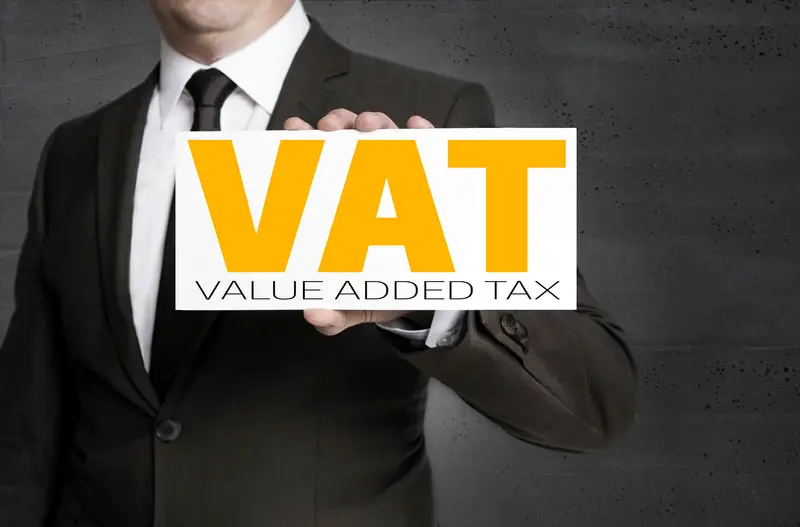Not every business in the UK is required by law to register for VAT. Many do not, if for no other reason than to save themselves the hassle of having to collect VAT and file regular returns. And yet there are very good reasons for registering voluntarily. Yes, you read that correctly. There are good reasons for voluntarily collecting and paying VAT.
Before you roll your eyes, consider what the law requires. All businesses that sell non-exempt goods and services with a total value in excess of the government set threshold are required to register for VAT. Once registered, they are required to charge customers on all future, non-exempt purchases. The money they charge is then forwarded to the government via regularly scheduled payments sent with VAT returns.
The current threshold is £85,000. So if your business has not made that much in the previous 12 months and you don’t expect to eclipse the threshold within the next 30 days, you don’t have to register or collect VAT. But maybe you should. Here are the top five reasons for doing so:
1. Temporarily Increase Cash Flow
Brand-new companies not required to register sometimes do so in order to temporarily increase their cash flow. Remember that once registered, a business must start charging VAT. That means extra money in the till – at least until the company’s first VAT return is filed. It is money that could prove vital to cash flow during the early stages of operation.
Ideally, the company would want to generate enough revenues to be able to pay VAT on time without jeopardising cash flow. But that sometimes that is more difficult than it sounds for start-ups. VAT Loans can be utilised to get a new business through the first one or two payment periods if need be. A VAT loan is essentially a business loan taken out to pay taxes.
2. Increase Company Authority
A new company may voluntarily register for VAT with the knowledge that it adds a measure of authority. In other words, customers purchasing from your competitors may see them as more trustworthy and reliable simply because they charge VAT. If you are not charging, that tells your customers that either you have not been around as long or you’re not making as much money. As such, your business will have a lower standing as compared to your competitors.
3. Not Letting on About Your Turnover
Another reason some start-ups immediately register for VAT is to conceal indirect information about turnover. Remember that the turnover threshold is £85,000. If your new start-up is not yet VAT registered, that signals to your customers that your revenue share has not yet hit the threshold. Maybe you don’t want them to know that.
Registering for VAT does not open up your financial information to public scrutiny. So it’s not like registering would reveal your turnover. What it does is conceal the fact that your turnover has not yet reached the threshold. This could be important to your company’s reputation.
4. Making B2 B Customers More Comfortable
There are some companies with customer bases made up primarily of other companies purchasing their products or services. These kinds of companies are known as B2B (business-to-business) entities. They may want to register for VAT voluntarily so as to make their customers more comfortable about their ability to get the job done.
VAT registration tells B2B customers that you are in it for the long haul. It tells them that you are not some unreliable operation that may disappear at the end of the month. If you don’t think this is important, look at it from the other side.
As the owner of a new start-up, would you rather purchase goods and services from vendors you can trust or those that make you nervous? The answer is obvious. Charging VAT tends to make a company more trustworthy among B2B referral customers.
If you are worried about higher prices, don’t be. Your B2B customers can reclaim VAT paid on all qualifying goods and services.
5. Reclaiming Your Own VAT
Finally, and perhaps most importantly, companies voluntarily register for VAT in order to reclaim what they pay. As mentioned in the previous section, businesses can reclaim VAT paid on certain goods and services. Not reclaiming it is like throwing money away.
As a start-up, your business needs as much cash as it can get its hands on. So even if your turnover is not yet high enough to force you to register, you might still be spending money on goods and services that are not VAT exempt. You are paying the tax without getting anything in return.
The key thing to remember here is that you cannot reclaim VAT on business goods or services if your company is not registered. VAT is an all or nothing proposition. If you want to reclaim what your business spends on VAT, your business has to be registered as well.
Now you know why some businesses voluntarily register for VAT despite not having reached the threshold for annual turnover. As mentioned earlier, there are very good reasons for registering even when you don’t have to. Obviously, whether or not registering is right for your business is something you and your accountant have to decide. There is no right or wrong answer for every business.
 Business First Family Business, Accounting, Finance, Investing, Marketing And Management
Business First Family Business, Accounting, Finance, Investing, Marketing And Management
